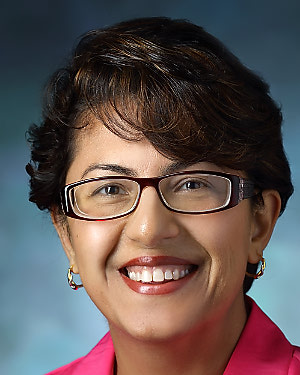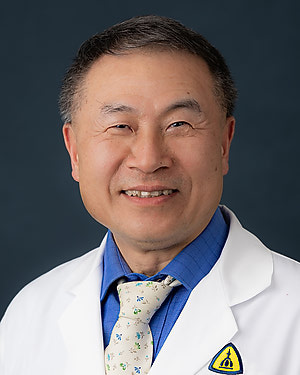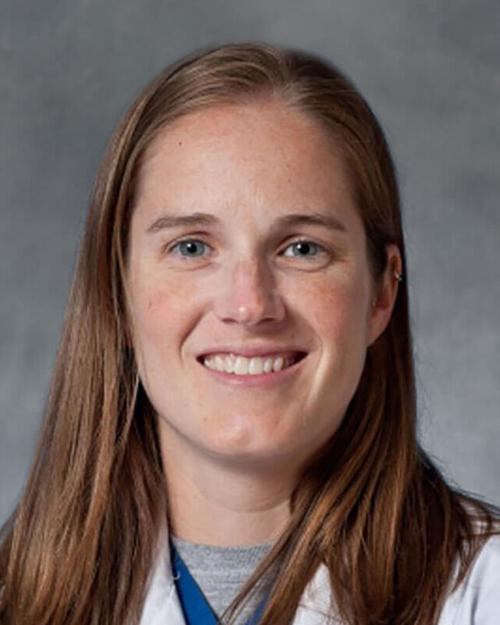Research Lab Results
-
Elizabeth Tucker Lab
Research in the Elizabeth Tucker Lab aims to find treatments that decrease neuroinflammation and improve recovery, as well as to improve morbidity and mortality in patients with infectious neurological diseases. We are currently working with Drs. Sujatha Kannan and Sanjay Jain to study neuroinflammation related to central nervous system tuberculosis – using an animal model to examine the role of neuroinflammation in this disease and how it can differ in developing brains and adult brains. Our team also is working with Dr. Jain to study noninvasive imaging techniques for use in monitoring disease progression and evaluating treatment responses. -
Nicola Heller Lab
Research in the Nicola Heller Lab focuses on the immunobiology of macrophages. Our team explores how these cells impact diseases with an inflammatory element, such as cancer, cardiovascular disease and obesity. Using a variety of techniques, including molecular and cellular biology, biochemistry, mouse models and more, we study the role of IL-4/IL-13 signaling in asthma and allergic disease, as well as the role of alternatively activated macrophages (AAM) in the pathogenesis of allergic inflammation. Currently, we are researching the links between asthma and obesity, with a focus on the roles of gender and race. -
Qian-Li Xue Lab
The primary area of statistical expertise in the Qian-Li Xue Lab is the development and application of statistical methods for: (1) handling the truncation of information on underlying or unobservable outcomes (e.g., disability) as a result of screening, (2) missing data, including outcome (e.g., frailty) censoring by a competing risk (e.g., mortality) and (3) trajectory analysis of multivariate outcomes. Other areas of methodologic research interests include multivariate, latent variable models. In Women's Health and Aging Studies, we have closely collaborated with scientific investigators on the design and analysis of longitudinal data relating biomarkers of inflammation, hormonal dysregulation and micronutrient deficiencies to the development and progression of frailty and disability, as well as characterizing the natural history of change in cognitive and physical function over time.
-
Franco D’Alessio Lab
The Franco D’Alessio Lab investigates key topics within the fields of critical care, internal and pulmonary medicine. We primarily explore immunological determinants of acute lung inflammation and repair. Our lab also investigates age-dependent lung immune response in patients with acute lung injury and acute respiratory distress syndrome (ARDS), regulatory T-cells in lung injury and repair, and modulation of alveolar macrophage innate immune response in ARDS. -
Maryam Jahromi Lab
The Maryam Jahromi Lab researches infectious diseases such as influenza, tuberculosis, endocarditis, viral hemorrhagic fevers, brucellosis, Clostridium difficile and Crimean-Congo hemorrhagic fever. We are particularly interested in the impact of the influenza vaccine on systemic inflammation. Recent areas of focus include the relationship between influenza vaccination and cardiovascular outcomes, the emergence of Crimean-Congo hemorrhagic fever in Iran, and prospects for vaccines and therapies for Crimean-Congo hemorrhagic fever.
-
Mark Liu Lab
Research in the Mark Liu Lab explores several areas of pulmonary and respiratory medicine. Our studies primarily deal with allergic inflammation, chronic obstructive pulmonary disease (COPD) and asthma, specifically immunologic responses to asthma. We have worked to develop a microfluidic device with integrated ratiometric oxygen sensors to enable long-term control and monitoring of both chronic and cyclical hypoxia. In addition, we conduct research on topics such as the use of magnetic resonance angiography in evaluating intracranial vascular lesions and tumors as well as treatment of osteoporosis by deep sea water through bone regeneration.
-
The Sfanos Lab
The Sfanos Lab studies the cellular and molecular pathology of prostate disease at the Johns Hopkins University School of Medicine. We are specifically interested in agents that may lead to chronic inflammation in the prostate, such as bacterial infections and prostatic concretions called corpora amylacea. Our ongoing studies are aimed at understanding the influence of prostate infections and inflammation on prostate disease including prostate cancer and benign prostatic hyperplasia (BPH). The laboratory also focuses on the influence of the microbiome on prostate disease development, progression, and/or resistance to therapy. -
Sean Leng Lab
The Sean Leng Lab studies the biology of healthy aging. Specific projects focus on chronic inflammation in late-life decline; immunosenescence and its relationship to the basic biological and physiological changes related to aging and frailty in the human immune system; and T-cell repertoire analysis.
-
John Schroeder Lab
The John Schroeder Lab focuses on understanding the role human basophils and mast cells play in allergic reactions, as it relates not only to their secretion of potent inflammatory mediators (e.g., histamine and leukotriene C4) but also to their production of pro-inflammatory cytokines. We have long utilized human cells rather than cell lines in order to address the parameters, signal transduction and pharmacological aspects underlying clinically relevant basophil and mast cell responses. As a result, the lab has established protocols for rapidly isolating large numbers of basophils at high purity from human blood and for growing culture-derived mast cells/basophils from human progenitor cells. A variety of assays and techniques are also in place for concurrently detecting cytokines and mediators following a wide range of stimuli. These have facilitated the in vitro testing of numerous anti-allergic drugs for inhibitory activity on basophil and mast cell activation. The lab also studies counter-regulation between the IgE and innate immune receptors on human immature dendritic cell subtypes.
-
Clifton O. Bingham III Lab
Research in the Clifton O. Bingham III Lab focuses on defining clinical and biochemical disease phenotypes related to therapeutic responses in rheumatoid arthritis and osteoarthritis; developing rational clinical trial designs to test new treatments; improving patient-reported outcome measures; evaluating novel imaging modalities for arthritis; and examining the role of oral health in inflammatory arthritis.


